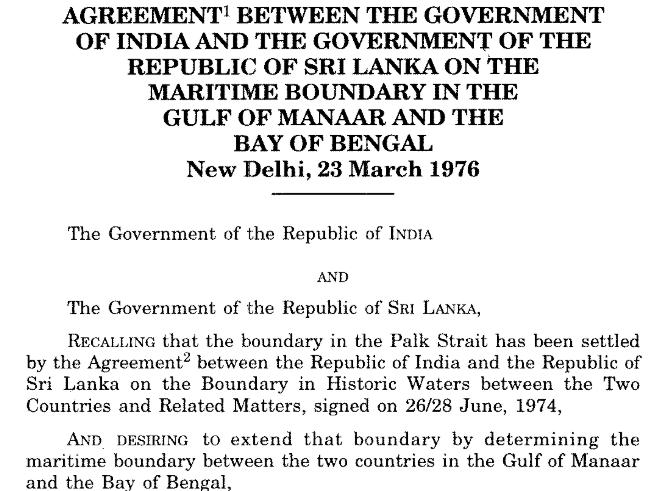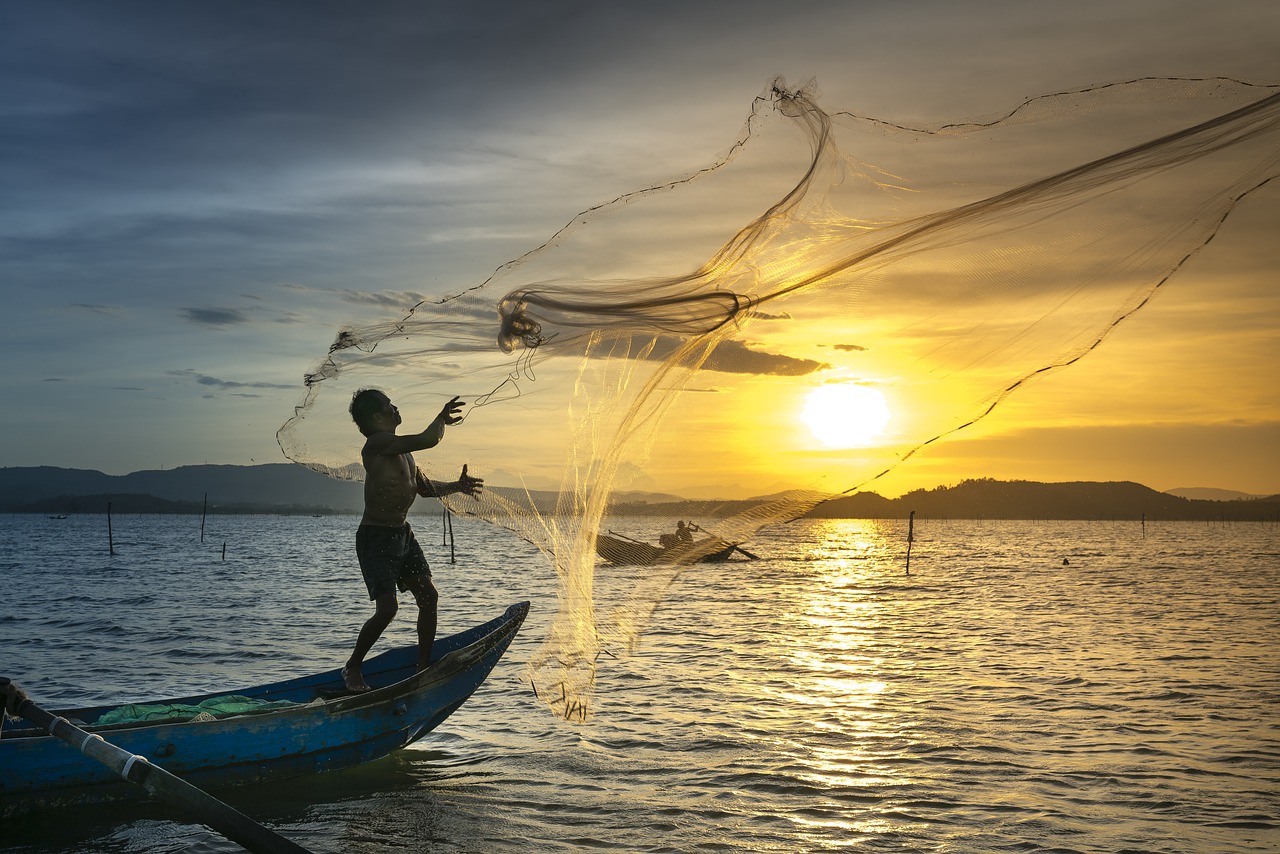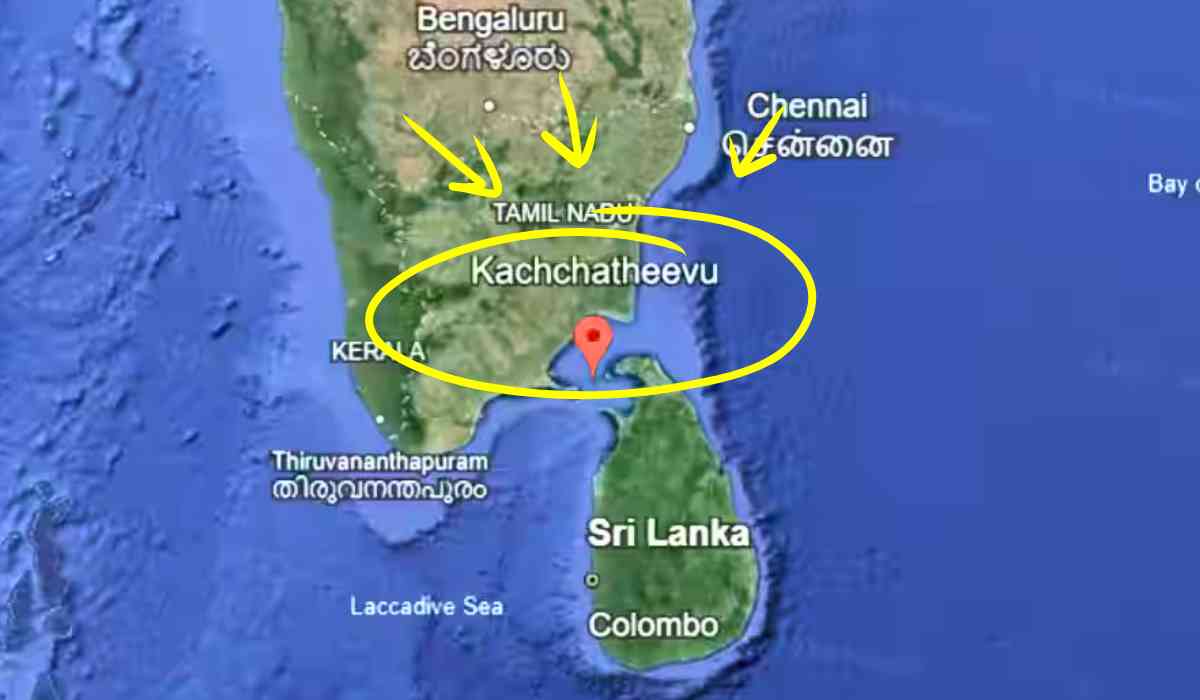The waves softly wash against the volcanic rock of Katchatheevu Island, a tiny uninhabited speck in the Palk Strait (The Palk Strait is a waterway separating southern India from Sri Lanka. Think of it like a sea passage. It connects the Bay of Bengal on one side to a shallow area called Palk Bay on the other. The strait is known for Adam's Bridge, a chain of islands and reefs that some believe is an ancient land bridge.) Under this placid surface, though, is a story of simmering tensions, a fight for sovereignty, fishermen's livelihoods, and the complicated relationship between Sri Lanka and India. This island casts a broad shadow, hardly larger than a dot on a map.
_1712220926.png)
PC: Britannica's Encyclopedia
A Volcanic Birth and Troubled Past
The narrative of Katchatheevu starts with a bang: molten rock erupted from the depths of the Palk Strait during a volcanic eruption years ago, establishing the island that exists today. The tumultuous history of the island is set in motion by this fiery origin.
Southern India's island of Katchatheevu has a long history that dates back to the 12th and 16th centuries. Both the Ramnad kingdom in India and the Jaffna kingdom in Sri Lanka had previously claimed it. Later, in the early 19th century, the British Empire included the island in the Madras Presidency. As the island rose from the ocean floor aeons ago, its history is similar to that of its volcanic genesis. It has been a pawn in a mediaeval power struggle. The British Empire's Madras Presidency included Katchatheevu in 1974, marking a significant shift in the region's history.
_1712220483.png)
Katchatheevu island (PC: Wikimedia Commons)
The 1974 Agreement: A Controversial Decision and Its Consequences
Tamil Nadu fishermen were shocked when Prime Minister Indira Gandhi gave up India's claims to Katchatheevu and acknowledged Sri Lankan sovereignty. The island, which has provided a livelihood for generations, is significant, with around 6,000 Indian fishermen from Rameswaram relying on its waters. Crossing the newly drawn International Maritime Boundary Line (IMBL) means risking arrest by the Sri Lankan Navy, and thousands of Indian fishermen have faced detention, often for unintentional straying across the invisible line. Their boats, sometimes their sole possessions, have been seized, leaving families in despair. The Madras High Court in 2024 has urged the Sri Lankan government to find a lasting solution to the issue of Indian fishermen being arrested and their boats seized. The court had granted time until March 25th for the government to convene a meeting of the India-Sri Lanka Joint Working Group on Fisheries, highlighting the livelihood impact on fishermen and their families.
The human cost of this dispute transcends economics; it disrupts lives, separates families, and creates an atmosphere of fear and uncertainty. Nearly 80% of interviewed fishermen reported facing arrest or detention by Sri Lankan authorities at least once. The fear of straying across the invisible IMBL line forces them to fish closer to shore, leading to dwindling catches. The anxiety of potential arrest and the economic hardship caused by confiscated boats and lost fishing days have severely impacted these communities, leaving families struggling to make ends meet. The once-vibrant fishing harbour of Rameswaram now carries the weight of this uncertainty, a stark reminder of the human cost of a political standoff.

Political rhetoric and the human cost
Politicians in Tamil Nadu frequently use Katchatheevu as a political football during elections, inciting a frenzy over the issue. The Congress party is accused by Prime Minister Narendra Modi of giving away Indian territory, which has recently stoked tensions once more. However, this is more than just a political game for the fishermen on both sides of the Palk Strait.
Strained Relations and Diplomatic Efforts
A festering wound in relations between Sri Lanka and India is the issue of Katchatheevu. Modi's remarks served as a sharp reminder of the burdensome past this little island bears. Declassified Indian government records even go back to the 1960s and show internal discussions about the island's status. The pursuit of Katchatheevu's return is ongoing. During his visit, the Chief Minister of Tamil Nadu recently recommended giving priority to talks with the President of Sri Lanka. The 1974 agreement's legality is also being investigated by the Indian Supreme Court.
However, this story is not limited to the past. With China's growing influence in the area, Katchatheevu is becoming increasingly strategically significant. India must delicately balance its strategic objectives with the genuine human cost of this conflict.

Representative fisherman photo(PC: Pixabay)
A Glimmer of Hope: Towards a Sustainable Future
There's some hope, thanks to the establishment of the India-Sri Lanka Joint Working Group on Fisheries in 2016. Through frequent meetings and open lines of communication, this group hopes to find a long-term solution. Their areas of focus—cooperative patrolling, cooperative research, and even humanitarian endeavours to secure the release of imprisoned fishermen—provide a way forward for a more sustainable future.
Another important step is to find alternative livelihoods for Indian fishermen. To reduce reliance on Katchatheevu's waters, the Indian government is investigating deep-sea fishing, encouraging aquaculture (fish farming), and even cultivating seaweed. It is imperative to exercise caution during this transition to guarantee a seamless changeover for these communities. Historically adept at catching.
ⒸCopyright 2024. All Rights Reserved Powered by Vygr Media.






















